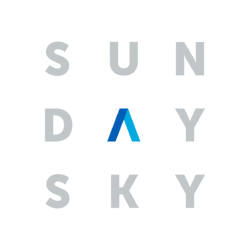SundaySky Uses PagerDuty to Proactively Resolve Customer Support Incidents
- Size: 101 - 500 employees
- Industry: Technology
- Location: New York, NY
- Customer Since: 2016
-
Key Integrations:
-
AWS Cloudwatch
-
Jenkins
-
Splunk
-
Zendesk
-
Founded in 2006, SundaySky is a technology company that aims to transform the customer experience for Fortune 500 companies by delivering video-powered experiences at critical moments along the customer journey that engages, educates, and inspires customers. Since its inception, SundaySky has delivered billions of video-powered experiences to its customers around the world.
Ran Geller, Director of Customer Support, is responsible for overseeing SundaySky’s global support operations and providing ongoing support for the video experience platform. Since the company emphasizes delivering video experiences to customers in real time, Geller’s team adopted PagerDuty to ensure that potential issues are addressed before customers are impacted. “The worst thing that can happen is if a customer tries to click on one of our client’s video experiences and the video won’t play. We do everything we can to make sure this doesn’t happen,” explained Geller.
Overwhelmed by Alert Noise
Before PagerDuty, SundaySky used a third-party network operations center (NOC) agency to monitor services and send email alerts to Geller’s team when issues arose. In the early days, this process was manageable, but as the company grew and the number of events increased, the email alerts began to overwhelm the customer support team, which could negatively impact the customer experience if left unacknowledged.
For instance, alerts would come in at all hours and sometimes be duplicated, which made it difficult for Geller’s team to differentiate between new alerts and duplicate alerts stemming from the same incident. To combat this, Geller and his team created an exception list, which notified the NOC agency about the issues to ignore. This exception list was helpful, but it also created some additional communication issues between Geller’s team and the NOC—for example, sometimes the on-call customer support agent was falsely called by the NOC team in the middle of the night due to an oversight caused by running manual procedures. It was apparent that Geller’s team needed a more comprehensive incident management solution as they continued to scale their operations along with the company’s growth.
SundaySky also experienced other challenges, including:
- Slow incident resolution times due to the inability to separate signals from the noisy alerts and the absence of automated escalation policies
- Difficulty communicating with the NOC agency, which negatively impacted SundaySky’s incident management process
- Lack of visibility into the status of open issues
“The duplication of alerts coming in at all times of the day became overwhelming. We needed to find a solution that would allow us to spend our time building tools rather than trying to respond to duplicate alerts,” shared Geller.
Shifting From Reactive to Proactive
To help reduce the noise, SundaySky turned to PagerDuty to streamline the incident management process. Within a month, SundaySky was able to implement PagerDuty into its customer support stack, eliminating the need for the outside NOC agency, which helped reduce operational costs for the company.
Today, Geller’s team uses PagerDuty’s Zendesk integration to track customer support-related incidents. When an incident comes in through PagerDuty, a support ticket is opened in Zendesk and the incident information is filled into the ticket, helping the team track incidents specific to customer support.
SundaySky’s customer support organization also takes advantage of PagerDuty’s ecosystem of 350+ integrations by utilizing the Splunk, AWS CloudWatch, and Jenkins integrations, in addition to working with PagerDuty’s API.
“With all of our monitoring tools connected to PagerDuty, we have been able to proactively resolve 70% of incidents coming in by automatically escalating incidents to the right person to resolve in a timely manner.”
– Ran Geller, Director of Customer Support.
SundaySky has seen several benefits with PagerDuty, including:
- Faster response and turnaround times with PagerDuty’s automated alerts and escalation policies
- Increased transparency into the digital health of the customer support organization with the ability to track incidents directly in the PagerDuty platform
- The ability to quickly scale operations now that they can focus on developing better monitoring tools and only get alerted when critical issues arise
- Prioritization of important alerts and a reduction of noise with PagerDuty Event Rules
“Because of PagerDuty, we are able to develop our monitoring tools further and scale our monitoring capabilities without fearing that it will overload the team or impact the monitoring process,” explained Geller.
Continuing to Scale
Looking ahead, Geller and team hope to continue to increase the percentage of incidents that are proactively dealt with. Additionally, he plans to utilize PagerDuty’s bi-directional integration with Zendesk so alert information is automatically populated in both platforms. Automating this workflow and injecting PagerDuty’s data and insights will allow Geller’s team to continually move towards proactive incident management. “PagerDuty allows our teams to proactively resolve incidents without being swamped by emails, saving us time and creating a much cleaner process,” shared Geller. In addition to the customer support organization, SundaySky’s engineering team has also adopted PagerDuty to help centralize communications between the two teams.
“PagerDuty has allowed our teams to gain visibility into the health of our incident management processes. The documentation of it all inspired me to display the PagerDuty platform on one of our monitors in the office so everyone can see exactly what needs to be done,” shared Geller.
PagerDuty helps organizations scale, even as the complexity of modern customer service increases—so customer service teams can process more tickets across multiple regions, time zones, and support channels.
To learn more about how PagerDuty can help your business with digital operations management, including customer service, try PagerDuty today.

